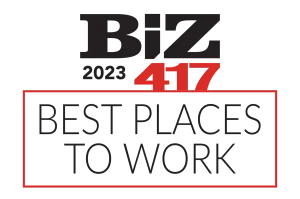
Understanding Commercial Mortgage Rates and the Real Estate Lending Process

When it comes to financing commercial real estate, understanding commercial mortgage rates, loan terms, and the lending process is crucial for making informed decisions. Whether you’re a seasoned investor or a first-time borrower, navigating the world of commercial loans can seem daunting. In this blog, we’ll break down everything you need to know about commercial mortgage rates, how to secure the best commercial loan rates, and the steps involved in the commercial real estate lending process.
What Are Commercial Mortgage Rates?
Commercial mortgage rates refer to the interest rates applied to loans used to purchase or refinance commercial properties, such as office buildings, retail spaces, warehouses, or multifamily housing. Unlike residential mortgage rates, commercial loan rates are typically higher because they are considered riskier for lenders.
Several factors influence commercial mortgage rates, including:
- Creditworthiness: Your credit score and financial history play a significant role.
- Loan-to-Value (LTV) Ratio: A lower LTV ratio often results in better rates.
- Property Type: Some property types are considered less risky and may qualify for lower rates.
- Market Conditions: Economic trends and Federal Reserve policies can impact interest rates.
- Loan Term: Shorter-term loans often have lower rates compared to long-term loans.
Commercial Loan Rates vs. Commercial Loan Interest Rates
While the terms are often used interchangeably, there’s a subtle difference:
- Commercial Loan Rates: This refers to the overall cost of borrowing, including interest and fees.
- Commercial Loan Interest Rates: This specifically refers to the percentage charged on the principal amount of the loan.
Understanding both is essential for evaluating the true cost of your loan. For example, a loan with a low interest rate but high fees may not be the best deal.
How to Find the Best Commercial Mortgage Rates
Securing the best commercial mortgage rates requires research and preparation. Here are some tips to help you get started:
- Improve Your Credit Profile: A strong credit score and solid financial history can help you qualify for lower rates.
- Shop Around: Compare rates from multiple lenders, including banks, credit unions, and private lenders.
- Negotiate Terms: Don’t hesitate to negotiate with lenders for better rates or fees.
- Consider Loan Type: Fixed-rate loans offer stability, while adjustable-rate loans may start lower but carry more risk.
- Work with a Broker: A commercial mortgage broker can help you find the best rates and terms tailored to your needs.
The Commercial Real Estate Lending Process
The commercial real estate lending process is more complex than residential lending. Here’s a step-by-step overview:
- Preparation: Gather financial documents, including tax returns, bank statements, and property details.
- Pre-Qualification: Get an estimate of how much you can borrow based on your financial profile.
- Loan Application: Submit a formal application with your chosen lender.
- Underwriting: The lender evaluates your creditworthiness, the property’s value, and its income potential.
- Appraisal and Inspection: The property is appraised to determine its market value and inspected for any issues.
- Approval and Closing: Once approved, you’ll review the loan terms, sign the agreement, and close the deal.
Why Securing the Best Commercial Interest Rates Matters
Even a small difference in interest rates can significantly impact your overall loan cost. For example, on a $1 million loan with a 20-year term, a 0.5% lower interest rate could save you tens of thousands of dollars over the life of the loan. That’s why shopping around and negotiating for the best commercial interest rates is essential.
Final Thoughts
Navigating commercial mortgage rates and the lending process doesn’t have to be overwhelming. By understanding the factors that influence rates, comparing offers, and working with experienced professionals, you can secure the best commercial loan rates for your investment.
Whether you’re purchasing a new property or refinancing an existing one, taking the time to research and prepare can save you money and set you up for long-term success in the commercial real estate market.

 Previous Post
Previous Post Next Post
Next Post






